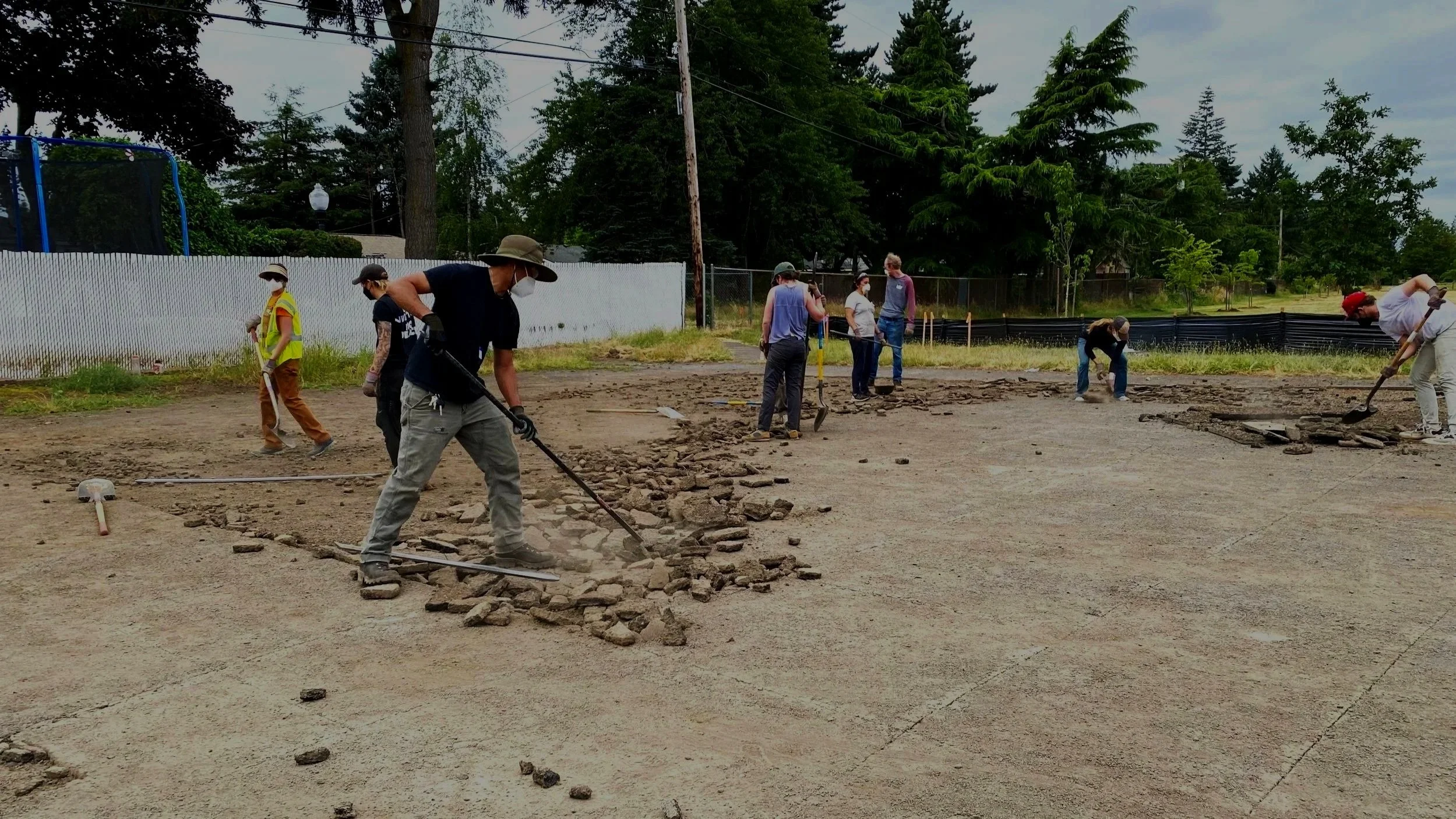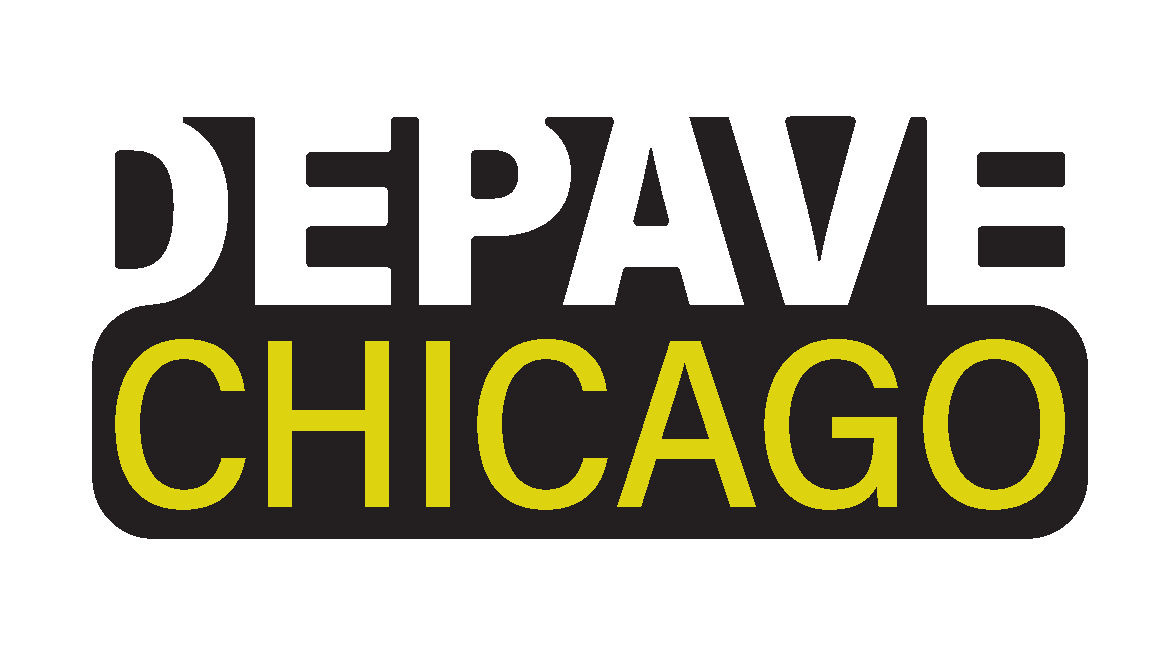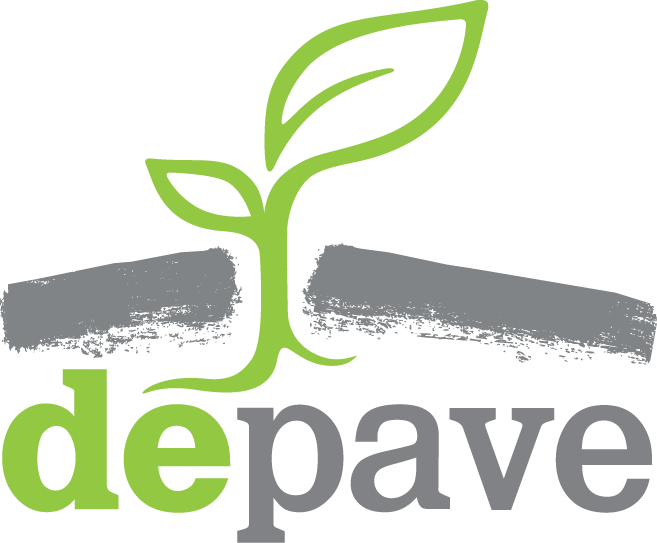
Depaving is Liberation, Collective Action, Future Building.
Why Depave?
To undo decades of unecessary pavement, restore nature through our cities, and create healthier environments for people, we must remove a key barrier: pavement.
Across Chicago, we face big challenges. Urban flooding, extreme heat, dangerous air quality, and a lack of trees, shade, and safe green spaces threaten communities, wildlife, and our rivers and lakes. By strategically removing asphalt, we create space for rain to soak in, trees to grow, children to play, and communities to thrive and adapt to accelerating climate change.
Chicago is not alone. Depave Chicago is part of a growing movement across North America working collaboratively with communities to peel back unnecessary layers of pavement, showing that incremental changes can make big impacts—healthier environments, stronger neighborhoods, and more resilient cities.
SAVE THE DATE
Depave Workshops @ The Montessori School of Englewood - Chicago
June 10-13, 2026
Please save the tentative dates for a hands-on depaving & greening project at The Montessori School of Englewood (TMSOE). TMSOE is a vital community hub in Englewood in Chicago where children, families, and neighbors are learning, growing, and investing for the future of their community. The TMSOE project will bring students, families, neighbors, and community organizations together to implement a collaborative model of schoolyard restoration and climate justice work; we hope the project will become an empowering model for other schools, striving to transform their grounds from paved surfaces to living places.
The original Depave organization in Portland, Oregon, accompanied by other depaving organizations from around country will help undertake the project. We will hold education sessions, workshops, on-site training, depave event days, and a community celebration. Please join us for all or part of the events to learn about and participate in a hands-on model of inter-generational, communal transformation.
Full information and schedule forthcoming!
Support Our Pilot Project!
We’re seeking funding to support the implementation of the pilot depave project at The Montessori School of Englewood.
Your donations will help pay for implementation and construction of the project, workshops, volunteer support, and education programming!
Thank you in advance!
Why we formed
Following years of exploring the challenges and root causes of urban flooding, heat island, air pollution, and inequitable public space and parks, we landed on one simple conclusion : Extensive pavement in our cities is one of the root causes of these issues, and therefore Depaving is one of the key solutions to solve flooding, prepare for a rapidly changing climate, create biodiversity habitat, protect public health, create better public space, and drive community empowerment. Depave Chicago aims to shine a light on the opportunities for systemic depaving, by providing resources, inspiration, and how-to-guidance on depaving a variety of typical asphalt sites. We aim to collaborate hand-in hand with communities for place-based transformation and urban planning and policy-makers on changes to our codes and ordinances to incentivize depaving.
In our work, we commit to:
RELATIONSHIP BUILDING. We commit to initiating projects and partnerships in ways that honor and create genuine reciprocity. Through deep listening we aim to build trust and create processes for everyone to participate fully from the very beginning.
COLLECTIVE PROCESS. Together with partners, we cultivate shared knowledge, resources, and capacity. We continuously learn and refine our approaches, and embrace transparent and iterative ways of working together.
TRANSFORMATIVE PURPOSE. We design and implement community-based projects that reimagine and vitalize community health, public space, and urban land. These transformations accrue over time and we hope they inspire others to take action.
LAND AS OUR MEDIUM. Our work is rooted in care for the land, honoring local knowledge, regenerative design, and reconnecting people with nature. We emphasize a dedication to the land and care for communities through attention to place.
THE LONG-TERM. We are dedicated to creative and careful planning to sustain this transformative work together long into the future. We navigate challenges together, adapt as needed, and celebrate successes together.
DEPAVE CHICAGO PARTNERS & SUPPORTERS
The start-up of Depave Chicago was funded by a Resilient x Nature Grant from the Walder Foundation. Depave Chicago is founded and managed by Professor Mary Pat McGuire in the Department of Landscape Architecture at the University of Illinois Urbana-Champaign (UIUC). Our location in the downtown Chicago Studio is generously provided by the College of Fine & Applied Arts and School of Architecture, UIUC.
We give special thanks to Katya Reyna and Ted Labbe of Depave (Portland) whose mentoring and teaching laid the groundwork for our program and fuel our ethos and passion for this work. Katherine Rose, Malena Marvin and numerous Depave board members continue to provide critical guidance and collaboration on our pilot project - we could not do it without them!
We’re also grateful to organizations across the Chicago region who have supported the start-up of Depave Chicago; these include: Chicago Region Trees Initiative at the Morton Arboretum, Environmental Law & Policy Center, Greater Chicago Watershed Alliance, Calumet Stormwater Collective, Metropolitan Water Reclamation District of Greater Chicago, Neighbors for Environmental Justice, Openlands, Trust for Public Land, US Forest Service - Chicago Region, Nordson Green Earth Initiative, Red Oak Rain Garden (University of Illinois), the Farnsworth Ground, and Urban Rivers (home to Wild Mile).
Land Acknowledgement
Depave Chicago, located in Chicago, Illinois, sits on the unceded lands of the Council of Three Fires, the Odawa, Ojibwe, and Potawatomi Nations, as well as the tribes of the Miami, Ho-Chunk, Menominee, Sac, Fox, Kickapoo, and Illinois Nations. Controlled occupation of these lands through land cessions and forced removal of Indigenous people occurred through the Treaty of Greenville (1795), the Treaty of St. Louis (1816), and the Indian Removal Act (1830). The histories of Indigenous peoples and all communities throughout the Chicago region must be acknowledged in the work of Depave Chicago. We must honor and celebrate traditions and care for the land and the waters of the region. And we must contribute to the work of restoring relationships among land, water, people, and all living species and entities of the region for remaining Indigenous communities and for all people who live here.




